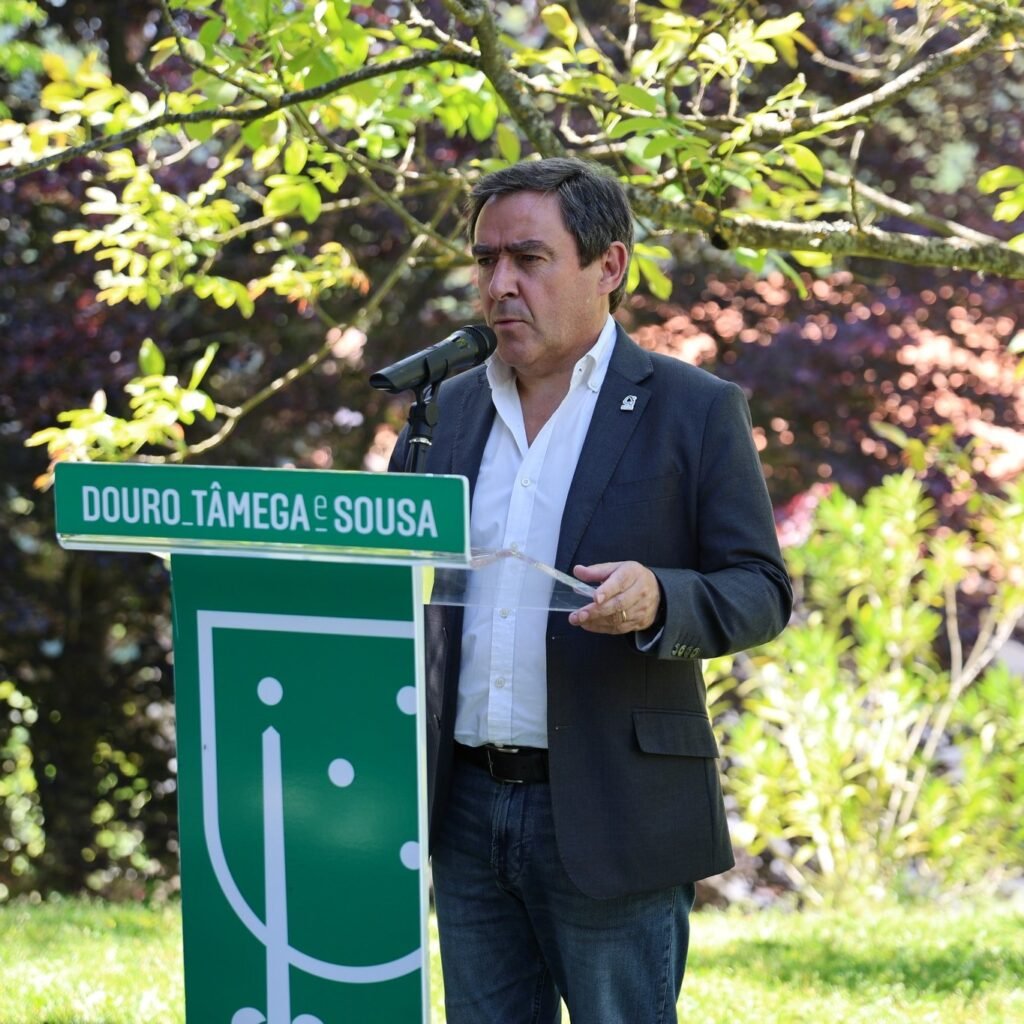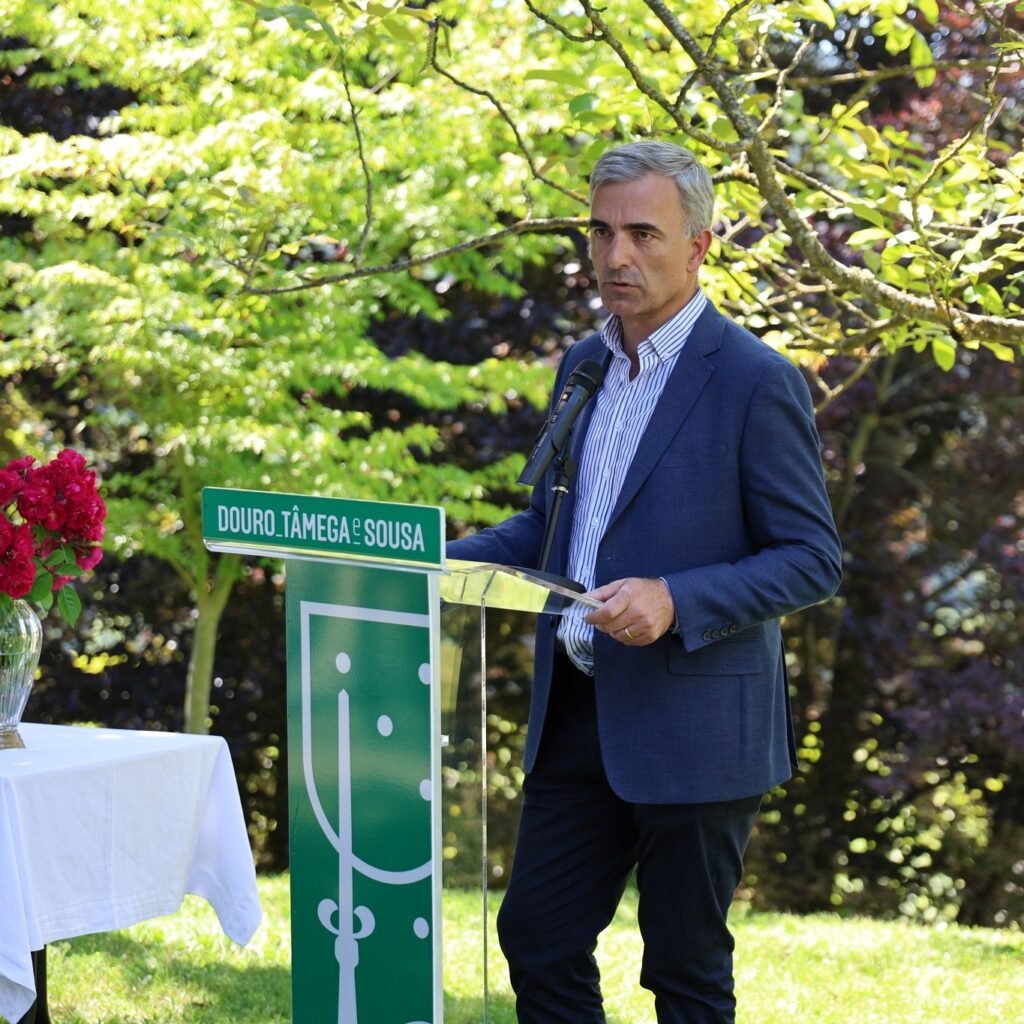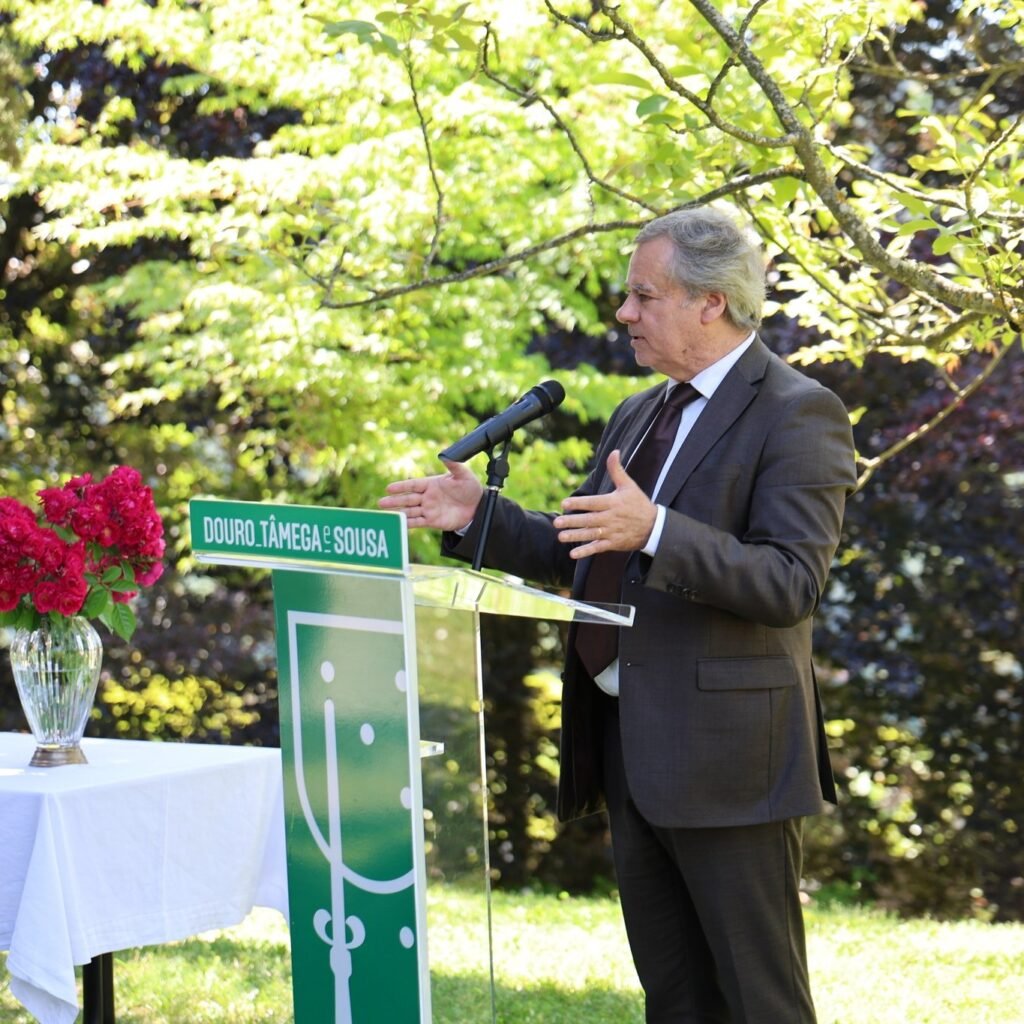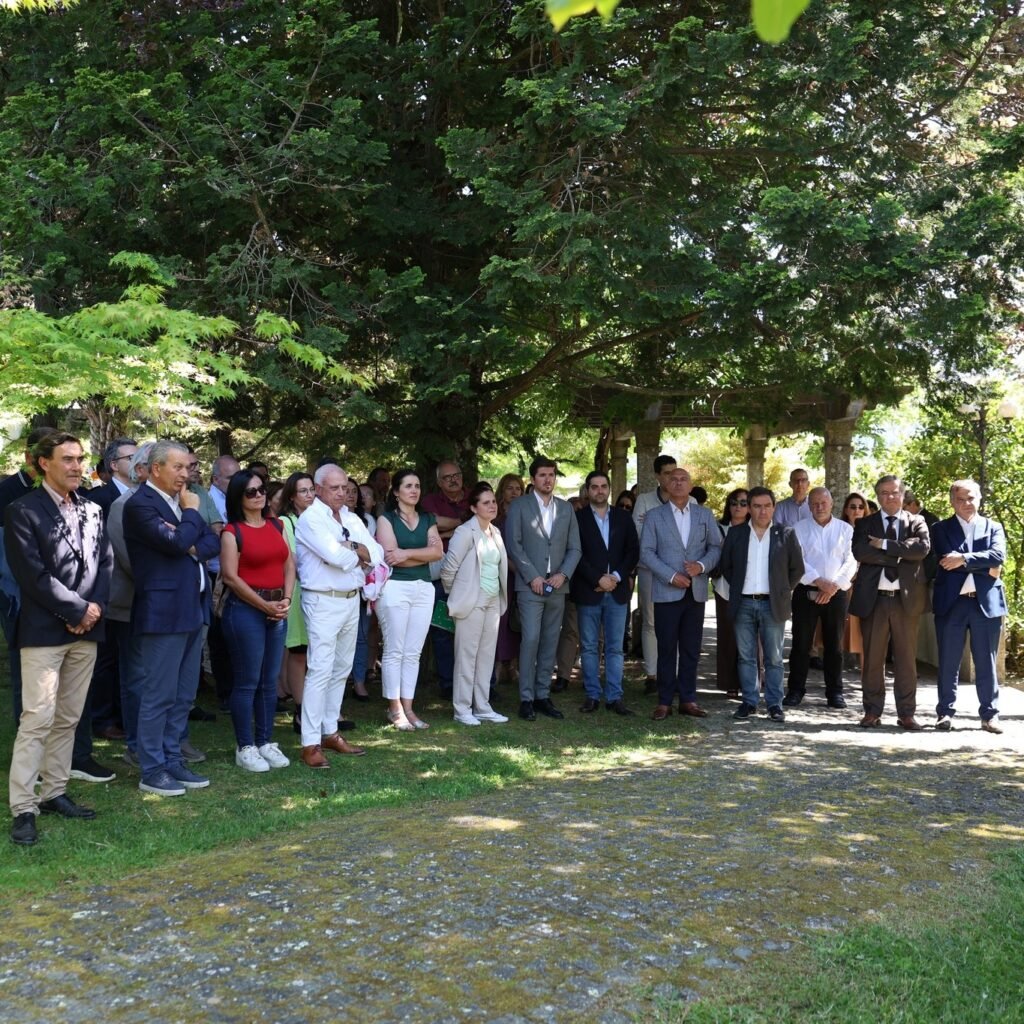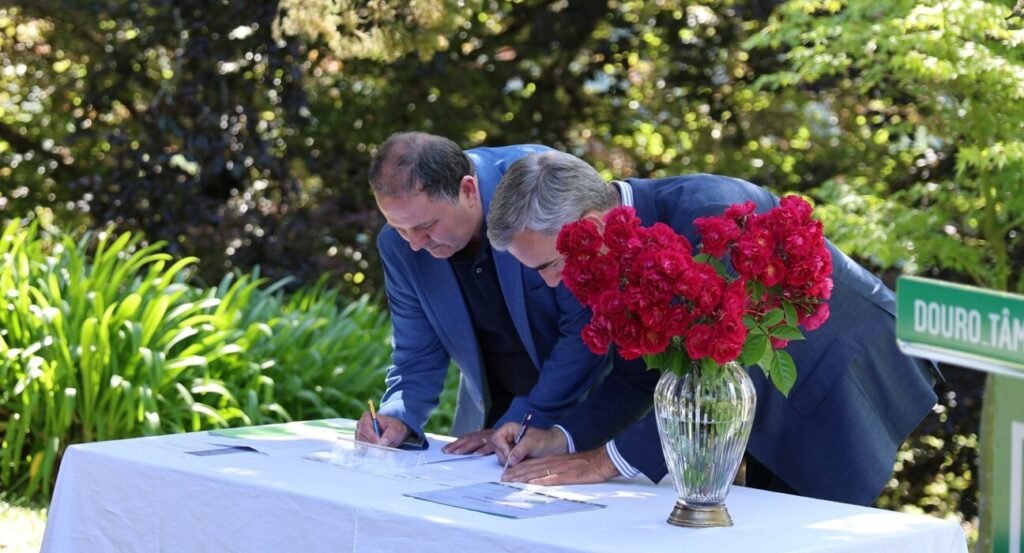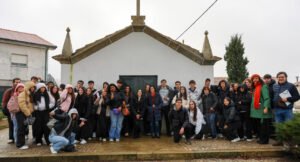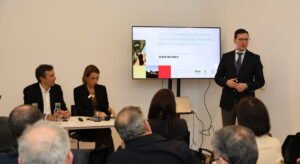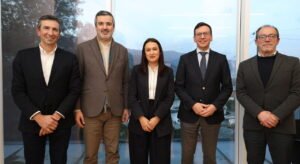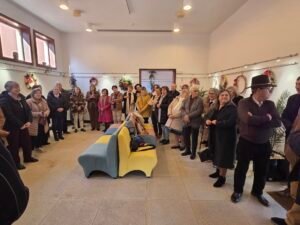On 28 May, Baião hosted the ceremony to formalise the membership of the Tâmega e Sousa Bio-Region in the International Network of Bio-Regions (IN.N.E.R.). This moment marks the strengthening of the territory’s commitment to sustainable development, the enhancement of endogenous resources, and the promotion of organic and regenerative agricultural practices.
At the official opening, the Mayor of Baião, Paulo Pereira, gave an update on the municipality, which has adopted measures and developed projects that are in line with the pillars of the Bio-Regions.
In this context, the mayor referred to ‘the creation of the Serra da Aboboreira Protected Landscape’, a project that also involves the municipalities of Amarante and Marco de Canaveses, but also the ‘requalification of internal rivers’; ‘support for the creation of native breeds’, granting incentives to producers; as part of a wide range of measures aimed at environmental preservation and the protection of the planet.
Paulo Pereira noted the example of Quinta do Mosteiro de Ancede, owned by the municipality, which has already been adopting organic farming practices, but which is intended to evolve towards full organic and regenerative production.
CONVERGENCE WITH THE MUNICIPAL STRATEGY
The mayor, referring to the pillars on which the structure of the Bio-Regions is based – Environmental, Economic and Social – and adding Cultural to them, explained that these are the four pillars that align with the ‘certification of Baião as a Sustainable Tourist Destination’, which is expected to soon achieve the Gold Award, thus underlining the convergence with the options that the municipality has been implementing.
Pedro Machado, President of CIM Tâmega e Sousa, pointed to the example of Baião and highlighted the importance of an approach based on economic, environmental and social pillars, valuing local production, the protection of natural resources and the creation of skilled rural employment.
The creation of the Tâmega e Sousa Bio-Region is part of an integrated and participatory strategy developed over recent years, which culminated in the approval of structural instruments such as the Bio-Region Strategic Plan for the period 2025-2029.
This plan defines priority areas such as the promotion of healthy lifestyles; sustainable production (encouraging the conversion of farms to organic production and strengthening agroecological resilience); and local consumption (promoting local and organic products in different contexts, from markets to restaurants).
INTERNATIONAL RECOGNITION
Joining IN.N.E.R. will allow the territory to benefit from the sharing of good practices with other European Bio-Regions, specialised training in areas such as sustainability, the circular economy and regenerative tourism, and enhanced institutional recognition at the international level.
The ceremony took place at Quinta de Santa Teresa, in Loivos da Ribeira, and was attended by institutional representatives, businesspeople and other strategic partners, including mayors from municipalities in the region, the Vice-President of the Northern Regional Coordination and Development Commission (CCDR-N), Paulo Ramalho, the President and First Secretary of the Intermunicipal Community of Tâmega and Sousa, Pedro Machado and Telmo Pinto; researchers from the University of Trás-os-Montes and Alto Douro, and officials from the International Network of Bio-Regions, including its President, Salvatore Basile.
